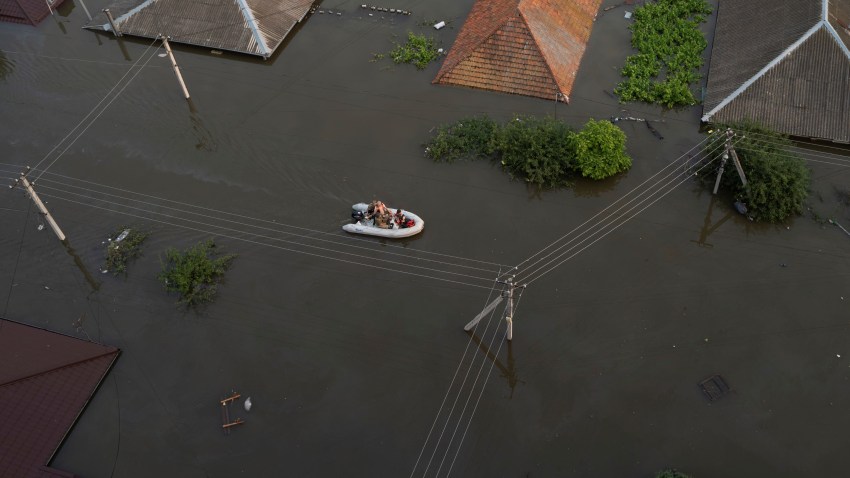On June 6, just as Ukraine’s counteroffensive against Russia got underway, the Kakhovka dam in southern Ukraine burst, flooding large areas of the lower Dnieper River in Kherson province. The floodwaters displaced thousands of civilians, blocked access to clean drinking water for at least 700,000 people and caused incalculable long-term damage to the region’s ecosystems.
The timing, location and scale of the breach immediately led to concerns and suspicions that it was an intentional act on the part of the Russian forces occupying the dam, meant to impede Ukrainian troop movements or contribute to the overall destruction of Ukraine’s infrastructure, territory and civilian population as part of the ongoing conflict. Ukrainian President Volodymyr Zelenskyy has accused Russia of “ecocide,” a concept not yet enshrined in international treaty law but gaining some sway with international legal experts to describe wanton acts with foreseeable, catastrophic environmental impacts. In return, Russia accused Ukraine itself of destroying the dam.
This Sunday, The New York Times revealed evidence suggesting that Russian agents in control of the dam very likely initiated the breach with a controlled explosion in the maintenance pathway running deep in the heart of the structure. The evidence included Soviet-era schematics available to the Russians who held the dam, as well as sources from Ukraine and Romania that both recorded seismic activity inside the dam consistent with explosions just before the breach. The day before the Times story broke, Reuters quoted international criminal lawyers from Global Rights Compliance, or GRC, investigating the breach who stated that their evidence also pointed to Russia. The GRC report has not yet been published, so the evidence its lawyers cited is unclear.

